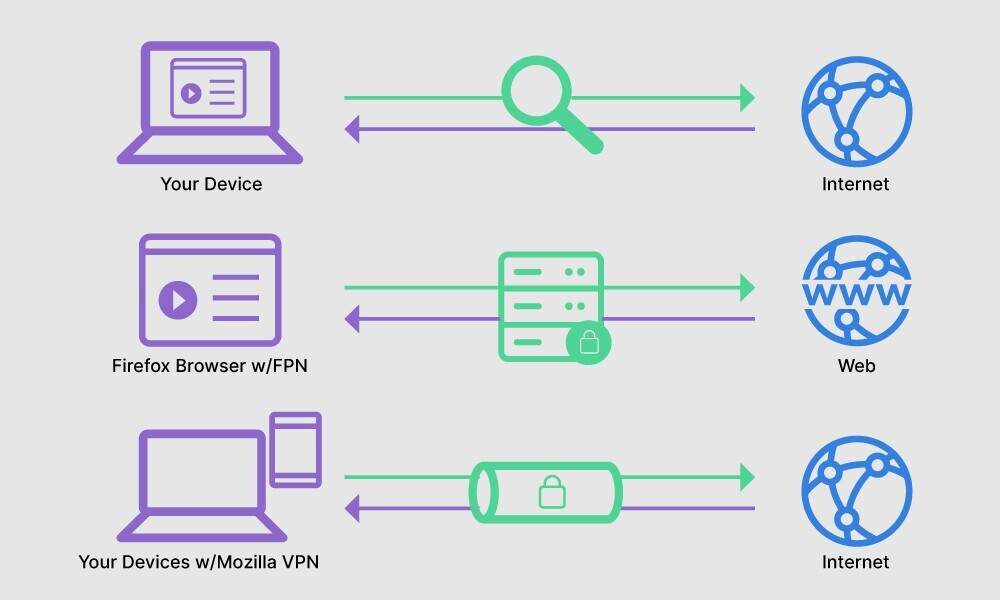Featured
Table of Contents
What Are Proxies And Vpns? Which One To Choose? - Crawlbase
SOCKS5 is not the same as a VPN. Rather, SOCKS5 is a kind of proxy server that's typically used for online gaming, sharing files or video chatting on a single website or app. VPNs, on the other hand, encrypt all web activity across all websites and apps.
For this factor, some users spend for a private proxy server which limits the number of users that access it, accelerating your connections. Proxies are likewise vulnerable to security exploits: they can be open to attack, permitting the bad guys to penetrate networks or steal personal data. Some proxies can still track (and shop) your surfing practices, as well as taping usernames and passwords rendering that guarantee of privacy null.
VPNs utilize a local client to produce the connection to the VPN server, so any regional CPU or memory issues will decrease the connections. VPNs are normally more expensive to utilize (and preserve) than a proxy server, and they are typically more complicated to handle. Simply like proxy servers, VPNs can't guarantee anonymity while browsing.
Your data will be secured to the VPN, but from that point on, it might be unencrypted to the web server. For some websites, this may be unimportant: an information-only webpage with no login or payment alternatives for example, however for any sites that require a login or online payments or any sensitive information make sure the website is enabled to utilize HTTPS.
What Is The Difference Between Proxy And Vpn?
The greatest argument to utilize a VPN instead of a proxy is the total file encryption for all traffic you get with the VPN. Dollar for dollar, a VPN is more safe than a likewise priced proxy. VPN providers preserve their own networks and you utilize their IP addresses for your connections.
Personal privacy and security matter these days, despite if it's your company information or your own individual data you require to protect. Make certain you're investing time and cash into the proper tools for your security goals: both proxies and VPNs add an additional layer of security and personal privacy to your data.

If your concerns are more around "what sites are my users striking," a proxy server is a much better tool. To get one of the most bang for the buck (and to safeguard your information as a security-aware resident), register for a well-regarded VPN service. For the a lot of part, VPN services enable you to utilize servers in various places to work around content restrictions.

If you're concerned about your personal privacy when using the internet, you may have thought about utilizing either a VPN or a proxy server. Both increase the security of your internet connection, but how precisely do they work, and how do they vary? If you are aiming to improve your online privacy, it is essential to understand the difference in between VPNs and proxy servers to make certain you're selecting the right tool for the job.
Difference Between Proxy And Vpn
How they attain that and the degree to which they provide other privacy functions differs greatly. Generally, when web surfing, your computer system connects to a site directly and begins downloading pages for you to check out. This process is straightforward. However, when you use a proxy server, your computer sends out all web traffic to the proxy first.
VPNs deal with the operating system level. This implies that they reroute all your traffic, whether coming from your browser or an app. They also encrypt traffic in between the web and your device. As an outcome, your Internet Service Service Provider (ISP) can't see what you're doing online simply that you're linked to a VPN server.


While speeds differ from supplier to service provider, VPNs are generally the much faster option. It isn't an excellent concept to use a free VPN service since they are limited in what they can provide and tend to mine your information. As an outcome, users tend to decide for paid-for VPNs, which supply higher information file encryption and are more protected.
This means that, in general, VPNs tend to be the more pricey option. VPNs deal with the operating system level and reroute all your traffic through a VPN server, while proxies work on the application level and only reroute the traffic of a particular app or web browser. This implies that VPNs encrypt all web activity, regardless of site or app, while proxy servers only hide one website or app at a time.
What's The Difference Between A Vpn And A Proxy Server?
Proxy servers aren't just used to unlock certain sites. Certain organizations business, schools, or libraries or perhaps moms and dads may desire to set up a transparent proxy to block or filter users' content when using the web.
Latest Posts
Best Vpn Services 2023 - Expert Tested And Reviewed
The Best Vpns For Businesses And Teams In 2023
Best Vpns For Business Travelers To Stay Digitally Fit (2023)